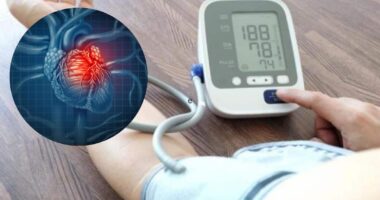 Factitious Disorder: Why Some People Might Be Faking Illness? – People dealing with factitious disorders are usually dealing with emotional difficulties such as an unmet need for affection and attention
Factitious Disorder: Why Some People Might Be Faking Illness? – People dealing with factitious disorders are usually dealing with emotional difficulties such as an unmet need for affection and attention
These individuals might have extensive knowledge of hospitals or medical terminology and can describe medical conditions like an expert
People feign illness for so many reasons. Sometimes it could be a good excuse to avoid an event such as a party or a test. Most of the time, this feigning won’t involve extreme exaggeration of symptoms and won’t cause affect the quality of one’s or another person’s life. However, sometimes this behaviour can cross a certain threshold and then it might be recognized as an illness.
Factitious disorder is a mental illness where the affected person can make up false symptoms or fabricate false sicknesses and receive unnecessary medical treatment for it. However, unlike maladaptive behaviour like malingering, which aims to gain some financial reward or outcome, people affected by factitious disorders do it for psychological reasons like unmet emotional needs. The condition has two forms, it can be either imposed on self or others like loved ones.
People with high emotional difficulties
While people engaging in malingering feign illness for practical gains like financial reward or to escape events like legal trials. However, people dealing with factitious disorders are usually dealing with emotional difficulties such as an unmet need for affection and attention. Hence, factitious disorder is recognized as an illness by the Diagnostic and Statistical Manual of Mental Disorders. People affected by the condition might also have other personality problems or disorders.
Behaviour exhibited by affected people
People affected by factitious disorders might have a history of mental disorders. Patients will often have a pattern of fabricating illness in various ways. They could often engage in tampering with test results or abusing medicines or chemicals in a way to achieve a certain clinical outcome. If any person is fabricating symptoms in a dependent, then in some cases they might also inflict injury on them. The following are some symptoms associated with the condition-
- The person affected or the caregiver might provide inconsistent medical history
- They might often describe symptoms that are not easily controllable or trackable for instance hallucinations
- These individuals might have extensive knowledge of hospitals or medical terminology and can provide you with textbook descriptions of illness
- They might have many surgical scars
- They might turn up with new symptoms after a certain test comes negative
- They might be always willing to go for more diagnostic tests
- They might only exhibit symptoms around loved ones or doctors
- They might have a history of receiving treatment at various clinics, hospitals and even different cities.
- They might repeatedly request for future course of action
- They might often seek attention and approval from healthcare professionals.
Oneself versus dependents
Also called Munchausen disorder, the affected person might impose illness on themselves. They might often press healthcare providers to believe that they need some unnecessary surgical procedure. They might consume some medications such as laxatives or insulin or some psychoactive symptoms to produce symptoms. They might go on to inject themselves with faeces or bacteria and sometimes reopen cuts or wounds. When the illness is imposed on others, it is usually seen between the caregiver (usually a parent) and child. The situation can become very risky as the dependent is being abused by the caregiver to the extent that their personal and social life is hampered adversely. The dependent will be made to experience frequent hospitalizations, will be missing school, suffer mental abuse and will also be at physical risk due to unnecessary tests and procedures carried on them. Home









